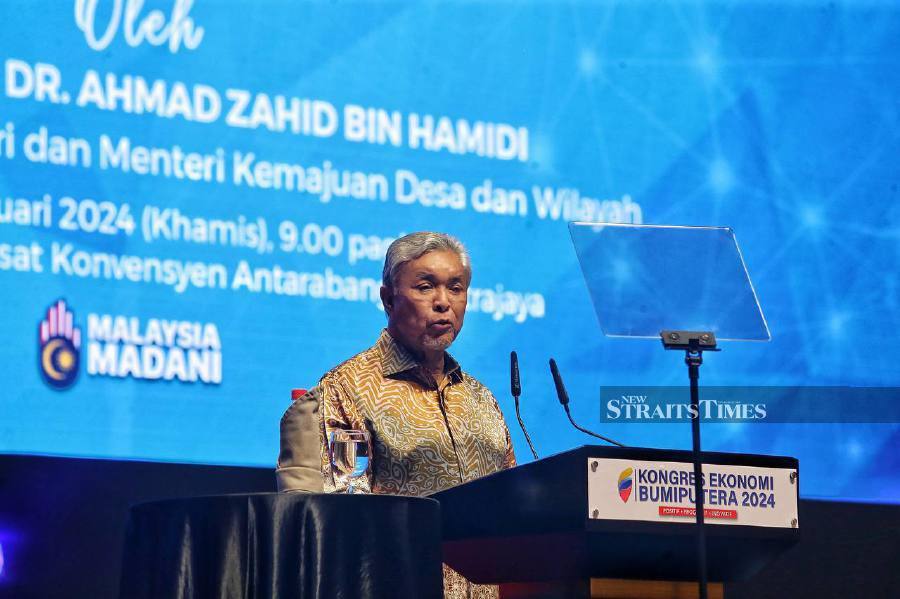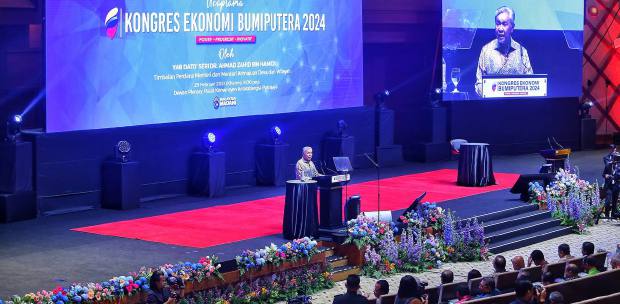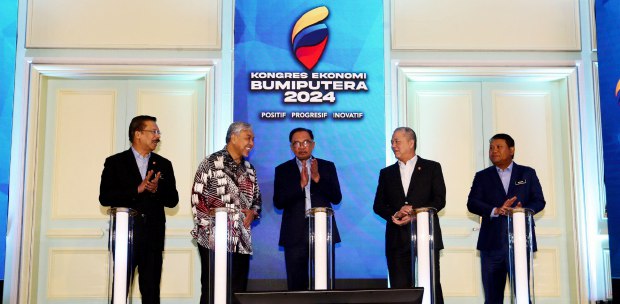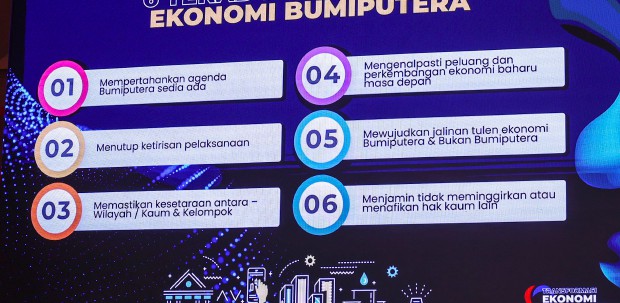PUTRAJAYA: Datuk Seri Dr Ahmad Zahid Hamidi has put forth a proposal for the establishment of a Bumiputera Land Corporation aimed at preserving their land ownership, which serves as a foundation for economic stability and the preservation of national identity.
The Rural and Regional Development Minister said this proposal stood as one of three crucial initiatives essential for empowering the Bumiputera community.
"This corporation will be entrusted with the task of drafting mechanisms to enhance and leverage Bumiputera land ownership in the future," he said during his keynote address at the opening of the Bumiputera Economic Congress (KEB) today.
Zahid, who also serves as the Deputy Prime Minister, also proposed that a certain portion of leasehold land be reverted to the government upon the lease expiry.
He recommended the application of this measure to leasehold land exceeding 20 hectares in agricultural areas or eight hectares in industrial zones.
"When lease terms expire and extensions are sought, 20 per cent of the relevant land should revert to the government and be administered through this corporation," he said.
He said the establishment of the Bumiputera Land Corporation was a proactive step to ensure demographic balance among races; the sustainability of Bumiputera business areas for agricultural, industrial, and new settlement purposes; and additional efforts to maintain Bumiputera ownership.
He said through careful and strategic planning, each business area was expected to provide maximum benefits to the Bumiputera community, creating sustainable economic prosperity.
The second initiative is a Bumiputera Health and Education Waqaf to ensure continuous health and education services to the group.
"This effort is also an attempt to address the issue of rising costs of health and education services for groups such as asnaf, the elderly, and affected target groups," he said.
He proposed a Bumiputera Healthy and Education Waqaf Plan (Sidik) aimed at providing facilities, equipment, and health services such as dialysis centres and machines, elderly health care services, and other related services.
Sidik, he said, would also provide financing for chronic disease treatment; empowerment of Bumiputera educational institutions and training centres; scholarship funding for Bumiputera children; and strengthening skills development programs to enhance Bumiputera workforce employability.
He proposed a contribution system from government-related companies (GLCs), government-linked investment companies (GLICs), trust foundations, and individuals to realise Sidik.
Meanwhile, the third initiative proposes the industrialisation of agriculture aimed at involving Bumiputera in large-scale food crop farming sectors and ensuring local food production.
"To achieve this, I propose the establishment of an entity that can play a role in providing funds and developing Bumiputera land or group-owned Bumiputera land with potential for food crop cultivation," he said.
The Bumiputera Economic Congress (KEB) 2024, themed "Positive, Progressive, Innovative", is jointly hosted by the Economy Ministry and the Rural and Regional Development Ministry at the Putrajaya International Convention Centre (PICC) over a three-day period.





